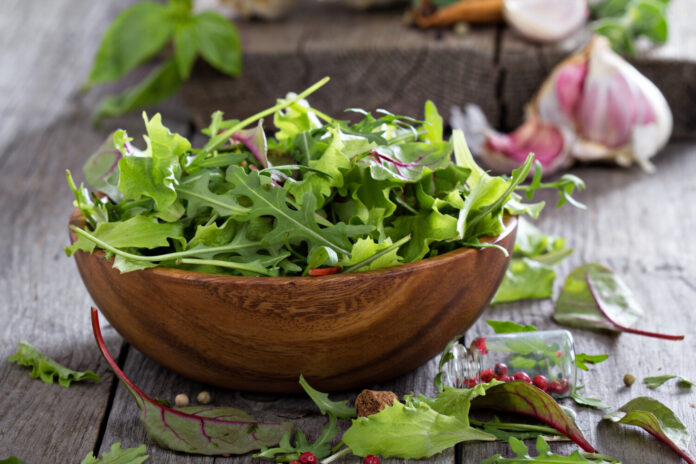In a world dominated by fast food and processed meals, it’s easy to overlook how important good digestion is for overall health. Enter digestive bitters: a centuries-old solution to modern digestive woes.
Used in traditional medicine systems like Ayurveda, Traditional Chinese Medicine (TCM), and European herbalism, bitters are making a comeback for their ability to enhance digestion and promote overall wellness.
What Are Digestive Bitters?

Digestive bitters are herbal extracts made from plants that are naturally bitter in taste. These formulas, often combined with aromatic herbs, work to stimulate your digestive system.
Common ingredients include gentian root, dandelion, wormwood, artichoke leaf, and orange peel. You’ll find bitters available as liquid tinctures, capsules, teas, and even sprays, making them versatile for daily use.
But why bitterness? Our ancestors instinctively knew that the bitter taste sparked powerful reactions in the body, particularly related to digestion.
How Digestive Bitters Work
The key lies in the bitter taste itself. When your taste buds detect bitterness, they send a signal to your brain, activating the vagus nerve. This response jump-starts several digestive processes:
– Saliva Production: Your body begins producing more saliva, the first step in breaking down food.
– Stomach Acid and Enzyme Release: Bitter compounds stimulate the secretion of stomach acid and digestive enzymes, aiding in the breakdown of proteins, fats, and carbohydrates.
– Bile Flow: The liver and gallbladder are prompted to release bile, essential for digesting fats and removing toxins.
The result? Smoother digestion, improved nutrient absorption, and reduced discomfort after meals.
Benefits of Digestive Bitters

- Enhancing Digestion: Bitters help your body break down food more efficiently, reducing issues like bloating and gas.
- Supporting Liver and Gallbladder Health: By stimulating bile production, bitters aid in detoxification and fat digestion.
- Improving Nutrient Absorption: Proper digestion means you absorb more vitamins and minerals from your food.
- Managing Appetite: Bitters can regulate hunger signals, potentially supporting weight management and reducing sugar cravings.
- Easing Indigestion: They provide natural relief for heartburn or feelings of fullness after eating heavy meals.
Who Can Benefit from Digestive Bitters?
Digestive bitters may be especially useful for people experiencing:
– Bloating, gas, or indigestion.
– Low stomach acid (a condition called hypochlorhydria).
– Sluggish liver or gallbladder function.
– General digestive sluggishness after meals.
However, bitters aren’t suitable for everyone. Those who are pregnant, breastfeeding, or have conditions like stomach ulcers should consult a healthcare professional before use.
How to Use Digestive Bitters
Taking digestive bitters is simple. Start with 10–15 drops in water, or take them straight under the tongue, about 10–15 minutes before a meal. This timing allows the bitters to trigger your digestive system, preparing it for incoming food. For those who dislike the strong taste, bitters are also available in capsule form.
Consistency is key: using bitters regularly can help your body adapt to their effects.
Common Myths About Digestive Bitters
– Myth: Bitters work like medications or digestive enzymes.
Reality: Bitters stimulate your body’s natural processes rather than replacing them.
– Myth: The stronger the bitter taste, the better.
Reality: Effectiveness isn’t solely about intensity—quality and the right combination of herbs matter.
Natural Sources of Bitterness in Food

You don’t need a supplement to enjoy the benefits of bitterness. Incorporating bitter foods into your diet can complement the effects of digestive bitters. Examples include:
– Leafy greens like arugula, kale, and dandelion greens.
– Artichokes and Brussels sprouts.
– Citrus peels, such as orange or lemon zest.
– Unsweetened dark chocolate.
Adding these to your meals can help train your taste buds to appreciate the bitter flavor, which is often underrepresented in modern diets.
Safety and Precautions
While bitters are generally safe, they can cause mild side effects like nausea if taken in large doses. It’s best to start with a small amount and gradually increase. Those with specific health conditions, especially related to the liver or stomach, should seek medical advice before use.
Conclusion
Digestive bitters offer a simple, natural way to support your body’s digestion and overall health. By activating the body’s natural digestive processes, they can alleviate discomfort, enhance nutrient absorption, and even support liver function.
Whether you’re adding bitter herbs to your diet or trying a tincture before meals, exploring bitters is an excellent step toward digestive wellness.
Curious? Take the plunge, start small, and see how these ancient remedies can transform your digestion! Bite the Plant offers two tinctures for digestive bitters – one with alcohol base and one with apple cider vinegar base.







